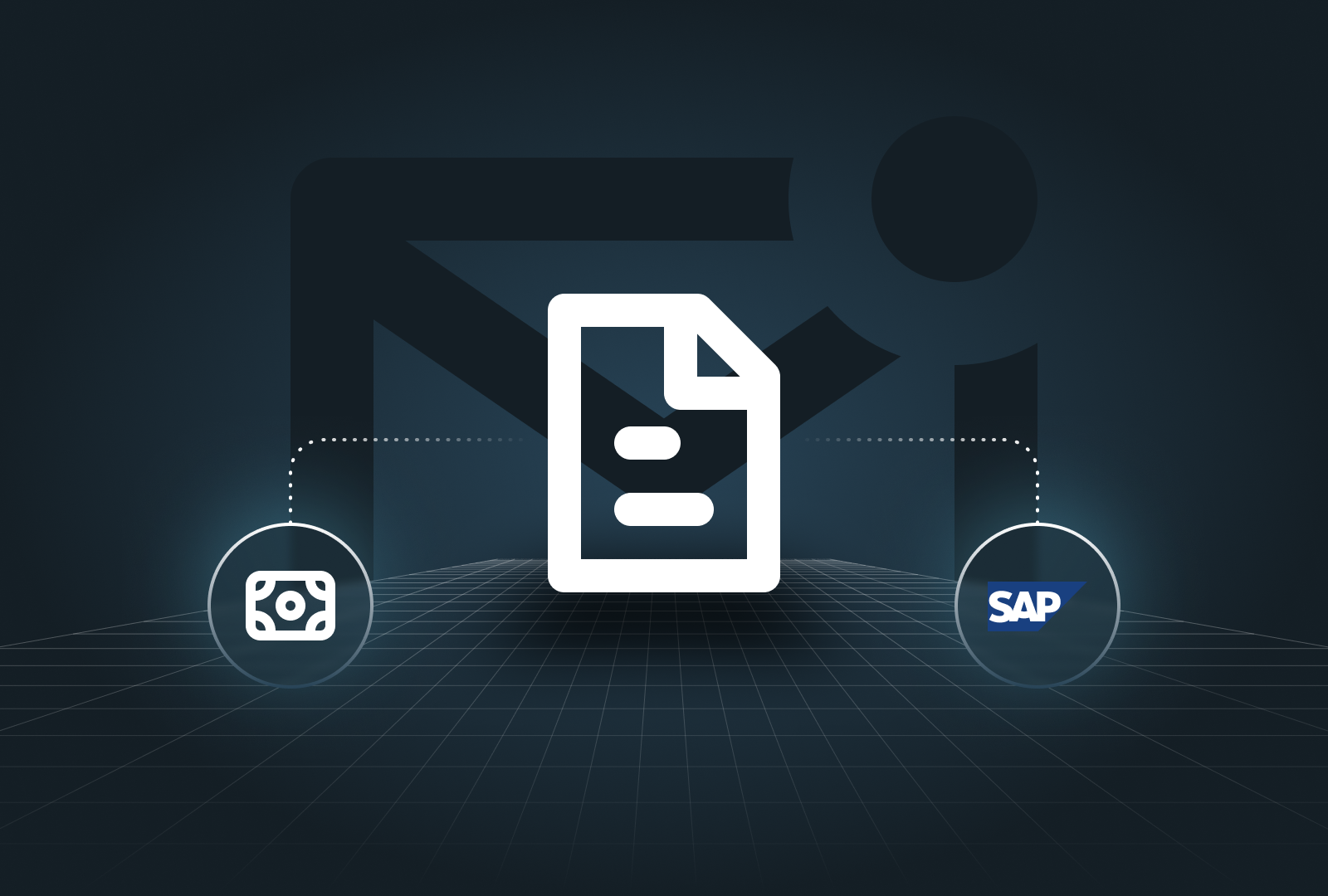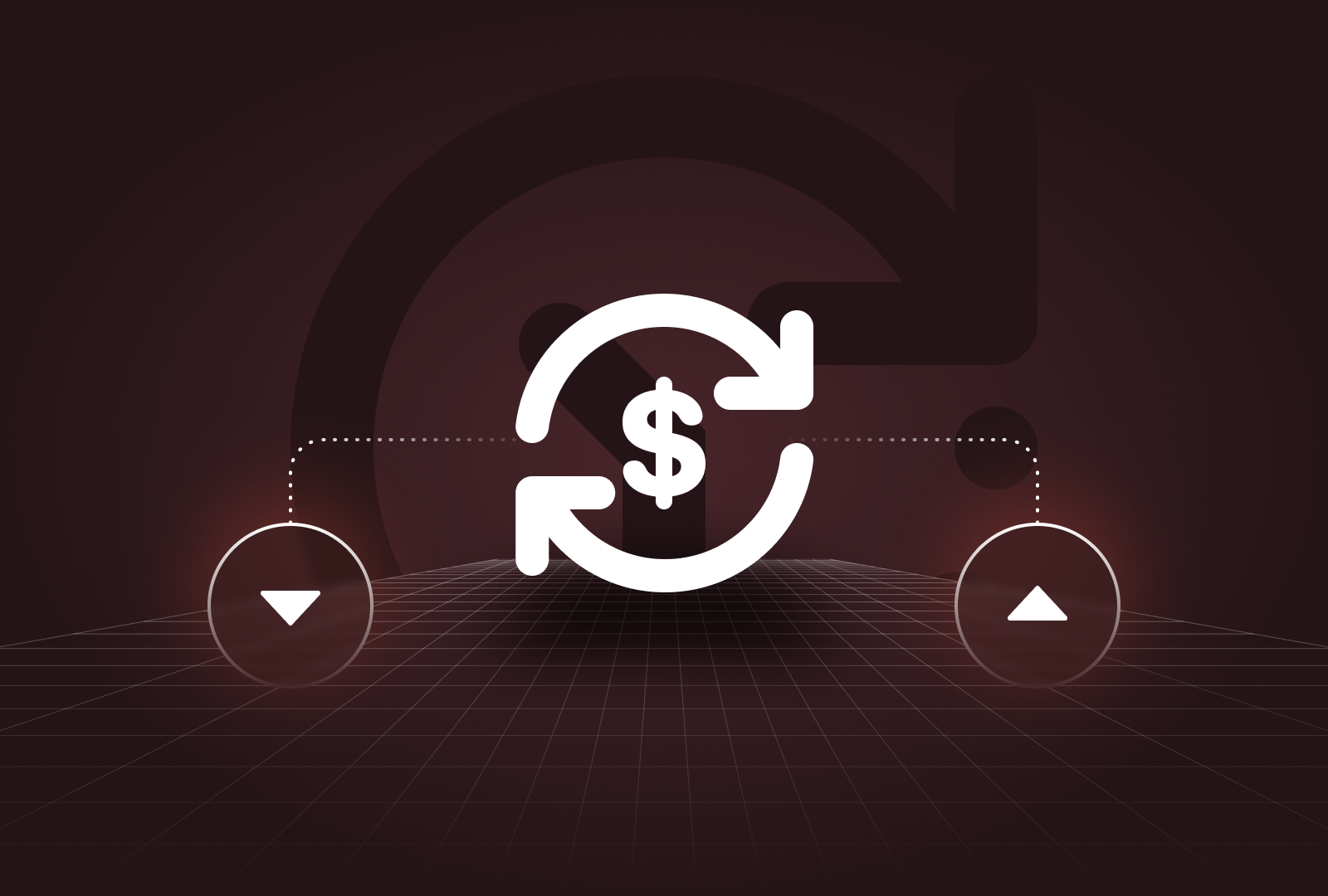Effective vendor invoice payment management is inseparable from smooth and successful business operations. This process is in direct correlation with a company’s financial stability, the quality of its relationships with suppliers, and overall performance. It is important to fully understand — and then optimize — the vendor invoice payment management.
By doing so, companies can improve cash flow, avoid penalties, and build stronger relationships with their suppliers. Thanks to recent technological developments, vendor invoice management has transformed quite a bit. Here, we will cover the basics of these processes, but also the new trends — mainly automation — that are reshaping this critical aspect of business activity.
Vendor Invoice Processing Overview
Understanding the Vendor Invoice Cycle
The vendor invoice cycle begins when a supplier issues an invoice and it ends when the company finalizes the payment. In between there are many phases. In short, the cycle starts when a vendor provides goods or services, and then it continues through invoice generation, submission, approval, and — at last — payment. Each step is critical in terms of maintaining the flow of the supply chain and operational efficiency. Effective management is crucial in this regard. Understanding each of these stages is critical for businesses trying to improve their invoice processing capabilities.
Key Stages in Vendor Invoice Processing
1. Invoice Submission: Vendors submit invoices to the company. Invoices include details about the goods or services provided, agreed pricing, and payment terms.
2. Invoice Verification: The company verifies invoices. This consists of ensuring that all information matches the terms set previously and that there are no discrepancies between the invoice and purchase orders or delivery receipts.
3. Approval Workflow: Once the invoice is verified, it is subjected to an approval process. Depending on the size of the transaction, this process might involve multiple departments or individuals.
4. Payment Processing: At last, the company processes the transaction according to previously set terms, ensuring compliance with payment schedules.
Optimizing Approval and Payment Workflow
Thanks to automation, efficiency levels in approval and payment workflows can be significantly and easily improved in several ways. Streamlining approvals, minimizing delays, and ensuring invoices are processed in accordance with predefined business rules — automation can take care of all of this. As a consequence, timely payments are ensured, and the risk of bottlenecks caused by manual processes is reduced.
What Is Vendor Invoice Payment?
Defining Vendor Invoice Payments and Their Role in Business Operations
Vendor invoice payment is the process of paying suppliers for goods or services provided — based on invoices already submitted. Companies must select a payment option, verify the invoice against the purchase order, and ensure timely payment. It is very important to pay suppliers on time and under agreed-upon terms. Without an effective invoice payment management system in place, companies run the risk of disrupting their supply chains and damaging vendor relationships.
Key KPIs for Vendor Processing Efficiency
Tracking the efficiency of the vendor invoice payment process involves focusing on several key performance indicators (KPIs). These are:
- Invoice Processing Time: The time between receiving invoices and approving them for payment.
- Invoice Approval Rate: The percentage of invoices that are approved without issues or delays.
- On-Time Payment Rate: The percentage of invoices processed within the defined payment period.
- Cost per Invoice: The cost of processing a single invoice — including manual labor, system costs, and any expenses resulting from errors.
Why Timely Vendor Invoice Payments Are Crucial for Financial Stability
The company’s financial stability and operational continuity are closely linked to timely vendor invoice payments. Typically, late payments will result in a number of problematic scenarios. First of all, they may lead to penalties and strained supplier relationships. Consequently, this can also cause interruptions in the supply chain. Vendors may impose late fees or adjust their terms unfavorably when a company regularly delays payments. This will also hurt cash flow and increase operating costs. Paying invoices on time helps keep these issues at bay. Moreover, being timely can often secure early payment discounts, further reducing costs.
Common Issues Businesses Face with Vendor Invoice Payments
During the vendor invoice payment process, a number of challenges can arise. Some of these are:
- Manual Errors: Errors in invoice entry or processing usually lead to delays in approvals and payments.
- Duplicate Invoices: When a company receives multiple copies of the same invoice, there’s a risk of unintended duplicate payments.
- Approval Delays: Typically caused by manual review processes or by waiting for multiple approvals from different departments, bottlenecks can appear in the approval workflow.
- Discrepancies: When mismatches between the purchase order, delivery receipt, and invoice details occur, additional time is required for resolution.
Importance of Vendor Invoice Payments
Building Trust and Strengthening Vendor Relationships
When it comes to building trust with vendors, timely and accurate invoice payments are indispensable. By simply paying suppliers on time, businesses will strengthen their relationships with the other party, making vendors more likely to offer favorable terms in negotiations or prioritize the company in the future. Solid supplier relationships will also lead to better collaboration and a more reliable supply chain.
Ensuring Resource Availability and Avoiding Disruptions
When you don’t pay vendors on time, they can withhold resources or delay deliveries. This will invariably disrupt your business operations. Keeping invoice payments in order helps maintain the continuous availability of essential goods and services, preventing bottlenecks and protecting production schedules from being negatively affected.
Preventing Penalties and Enhancing Business Reputation
Late or missed payments will also lead to penalties, including late fees and interest charges. If late payments become a recurring issue, this will have a negative effect on a company’s reputation, making negotiations with new or existing vendors more complicated. Promptly handling payments protects the company from such risks and improves its reputation as a reliable partner in the market.
Managing Vendor Invoice Payments Efficiently
Modern Solutions: Automated Vendor Invoice Payment Process
The way businesses handle their financial workflows has been profoundly transformed by the automated management of vendor invoices. How exactly does automation work? Essentially, invoices are processed by an integrated system that captures and organizes relevant data. The system then ensures that transactions are verified and approved before being automatically paid. The implementation of automated solutions in accounts payable systems minimizes manual effort and speeds up approval times, ensuring invoices are accurately processed and paid on time.
Cost-Saving Benefits of Invoice Automation
Automated vendor invoice management delivers significant cost savings. By using automated software, companies can handle a larger amount of invoices with fewer resources. This reduces labor costs, but it also ensures that transactions are automatically verified, matched with purchase orders, and paid correctly. With data being automatically processed by the system, the risk of duplicate payments and errors in financial transactions is reduced. Additionally, the automation system provides companies with real-time insights and more accurate financial forecasts.
Strengthening Compliance by Reducing Human Errors
By processing all invoices in accordance with internal policies and regulatory requirements, an automated invoice management system ensures that compliance is always maintained. Thanks to automation, companies reduce the risk of manual errors because the software checks every invoice against previously set criteria before the invoice is paid. Since every transaction is logged within the system, the audit trail that is created improves transparency and simplifies reporting. By maintaining compliance in this way, businesses can avoid penalties and improve overall financial management.
How Payflows Automates and Streamlines Vendor Invoice Payment
Payflows' Intake-to-Pay solution automates the entire procurement and invoice payment process. Efficient and user-friendly, it allows businesses to automate purchase order creation and it synchronizes seamlessly with ERP platforms like SAP and NetSuite. The solution collects all invoices via email, with automated alerts for missing invoices, significantly reducing the duration of the procurement cycle.
Thanks to OCR technology, the system extracts invoice data, matches it to the purchase order, and syncs with the ERP. As a result, approval workflows are streamlined, and manual errors are eliminated. Users are provided with real-time insights into spending patterns, so they can track invoice cycles more efficiently. The solution also simplifies payments by automating transactions via wire transfers or virtual cards, easily integrating with ERP systems to keep all data synchronized.
Conclusion
Apt vendor invoice management is essential in building and sustaining a company’s operational capabilities and financial balance. In short, this translates into streamlining payment operations, avoiding expensive delays, and strengthening supplier relationships. Additionally, with the rise of automation and digital solutions, managing procurement and payments has become more efficient and error-free.
Payflows is proudly contributing to these trends too. It offers comprehensive and user-oriented solutions that are specifically designed to meet contemporary needs in vendor invoice management. Its products easily automate the procurement and invoice payment process. They also provide instantaneous insights into data and are easily integrated with five ERP systems. Most importantly, by doing so, Payflows helps businesses optimize their financial operations, leaving them with more time to focus on growth.





.png)
.png)
.png)





.png)



